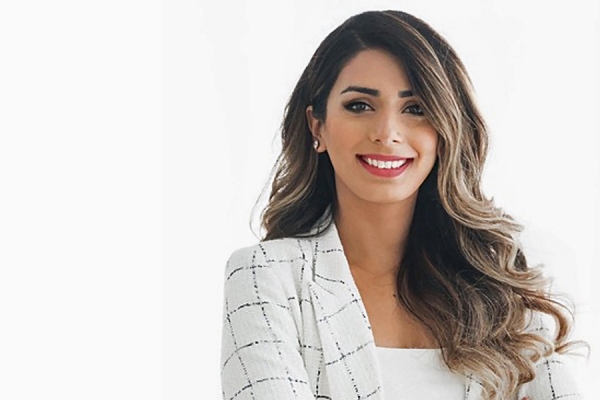 PhD student Nawal Mustafa is trying to improve the mental health of people everywhere by researching ways to improve cognitive testing for South Asian populations and posting self-help tips for her 566,000 followers on Instagram.
PhD student Nawal Mustafa is trying to improve the mental health of people everywhere by researching ways to improve cognitive testing for South Asian populations and posting self-help tips for her 566,000 followers on Instagram.
Whether on Instagram or in her research, doctoral candidate Nawal Mustafa is trying to improve the mental health of people everywhere.
Going by the handle @thebraincoach, Mustafa posts self-help tips on social media. Her Instagram account has 566,000 followers and counting.
“The idea is this is for everybody,” she said. “My goal is to normalize talking about mental health and provide resources on how we can improve it when it starts to deteriorate.”
Mustafa started the account while a full-time PhD student at the University of Windsor. She breaks down weighty topics into easily digestible posts like “7 Tips to Cope with Grief” and “6 Signs Your Mental Health is Declining.”
Some of the posts are short videos. Others are poster-style graphics. Mustafa has posted longer videos on YouTube.
“I wanted a way to pass on the knowledge I was learning in my program and put it out to the public.”
Her doctoral research focuses on making cognitive assessment applicable to Urdu-speaking populations. Since Urdu is the same in its spoken form as Hindi, Mustafa’s research would benefit people from across South Asia, including her native Pakistan, from which she emigrated at age 12.
More than 330 million people claim Urdu or Hindi as their native language. Yet none of the tests used to assess cognition were designed for them, Mustafa said. “Most tests for cognitive ability are standardized on white, middle-class populations.”
In cognition assessments, patients are shown pictures of objects and asked to identify them.
“There are things that may be common here in North America, but not in Pakistan,” Mustafa said of some of the images used in the tests. For example, how could people identify a maple key if they’ve never seen one before or even heard of maple tree?
Their inability to recognize an object would skew the test result.
“What I want to do is take an existing test and create another equally valid test that considers cultural and language differences.”
UWindsor professor Lori Buchanan said Mustafa’s work is important.
“There’s an obvious need,” Dr. Buchanan said of both Mustafa’s Instagram posts and research work.
“Urdu is the 10th most commonly spoken language in the world. When combined with Hindi, it’s the third most common language. Yet people who speak those languages don’t have the same access to cognitive tests.”
Using the maple key example, Buchanan said assessment questions can’t simply be translated and still be valid.
“By adapting English tests to Urdu and Hindi, she is creating a tool kit for people in Pakistan and India to test cognitive abilities.”
Buchanan, who is supervising Mustafa’s doctoral research, said she is impressed with the young woman’s Instagram presence.
“What she is doing is really important, especially right now when so many people are struggling with the day to day,” she said. “People need accessible little tips for how to get through life and her Instagram page is all about that.
“She is so warm and she talks about her own vulnerabilities. That’s what makes it so special.”
Mustafa said that in South Asian culture, talking about mental health is not common nor encouraged, but added: “I want to break down the stigma.”
—Sarah Sacheli
